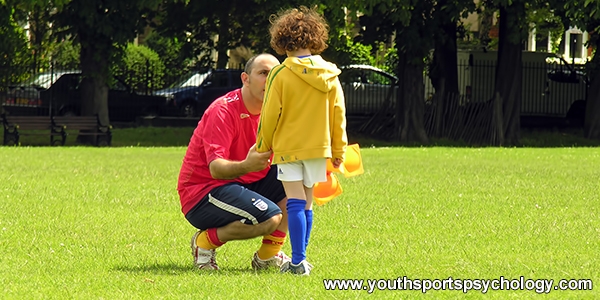How to Help Sports Kids Feel Less Pressure
What should you do if your young athlete wants to quit sports?
Seventy-five percent of young athletes quit sports by the age of 16.
The reasons vary, but most often, the child is no longer having fun.
As sports parents, what can you do?
You need to remember that if your sports children decide they want to quit a sport, there is very little you can do.
There are plenty of ways you can exacerbate the situation, though.
Often, sports parents will react to kids’ desire to quit a sport by putting pressure on them to continue.
This pressure not only doesn’t help the situation; it intensifies the sports kids’ negative feelings by adding pressure onto how they’re already feeling.
Sometimes sports children are already feeling pressure from the parents, which can prompt them to want to quit, so putting more pressure at this stage will hurt your sports kids’ ability to have fun—and their confidence.
So what can a sports parent do?
The answer is first to question your own motivation as a sports parent.
Are you motivated by your personal fulfillment or, on the other hand, are you motivated by your sports kids’ own desires?
Often, kids play sports to be with friends, or to be part of a team, but not necessarily to earn scholarships or always win.
If you find that you’re driven by your own ideas and not the wants and needs of your sports child, it is likely that you need to take a step back from the situation and stop trying to influence your sports child.
On the other hand, if you are motivated by doing what is best for your sports kids, take some time to talk to them about why they are struggling with their sport.
What has caused them to stop having fun?
Often, sports kids stop having fun because they develop fear of failure or a sport-based anxiety.
For fear of failure, you should begin by giving sports kids five get-out-of-jail cards.
When they make mistakes, make a flushing motion to say, “Move on to the next play.”
The idea is to take the pressure off and give them permission to make mistakes.
Related Articles on Youth Sports:
- How to Help Kids That Want to Quit Sports
- Parents, Have Your Kids Wanted to Quit Sports?
- What Do Girls Want To Get Out Of Sports?
*Subscribe to The Sports Psychology Podcast on iTunes
Help Young Athletes Boost Confidence in Sports!
Every day, we receive letters from parents like you who want their children and teens to excel in sports. However, these parents can see fear, doubt, and frustration on the faces of their kids who struggle with the “inner” game of sports. But these parents have no idea how to help their kids overcome the worries, expectations and self-defeating thoughts that prevent their young athletes from feeling confident and successful.
You can benefit from our 15-plus years’ of work in sports psychology and sports parenting research. Now, you can tap into our secrets to sports success through a cutting-edge, 14-day program that helps young athletes overcome the top “mental game” challenges that sports parents face—and the top challenges young athletes face.


